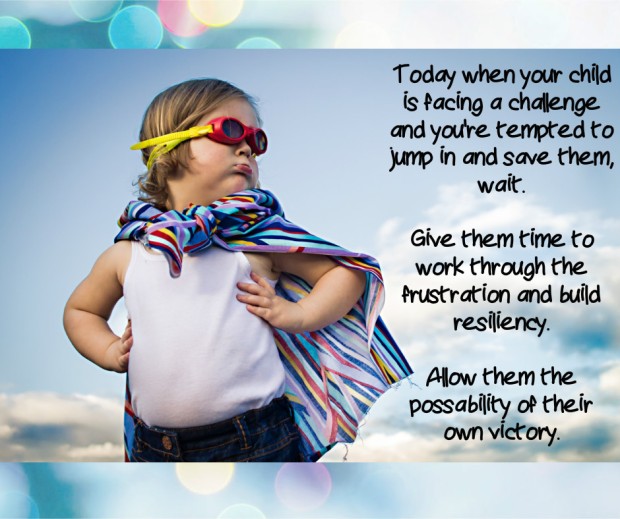
Today I read an article called, How Do I Know When I’m Over-Parenting? Licensed psychologist, Michael W. Anderson and Timothy D. Johanson, M.D., talk about the parent’s tendency to dote on children beyond those first 12 to 15 months, beyond what the child needs, oblivious to the children’s hints of, “I got this.” They talk about over-parenting as the tendency to over-do it in any one area: over-talking, over-complimenting, over-criticizing, over-interfering.
I initially started thinking about this concept after I was called out at a public park for not hovering. My son was a new walker and had toddled about 10 – 15 feet away from me. He was moving at an extremely slow pace and exploring a large grassy area. A nosey passerby stopped and called out, “whose watching this child?” I was baffled. I was hurt. I was standing just feet away watching my son enjoy his new skill while exploring the grass. I immediately felt defensive. I’m right here. And for the first time, I began to question, who does helicopter parenting benefit; the child or the surrounding strangers?
The article mentioned above does not contain groundbreaking revolutions. In fact, there are numerous studies and teaching strategies that focus on the benefit and necessity of fostering independence in children. One example is Maria Montessori (1870-1952) who stated, “When dealing with children there is greater need for observing than of probing” and “Never help a child with a task at which he feels he can succeed.” Today, over 4,000 Montessori schools have been developed in the united states, operating on these concepts, and there are thousands more throughout the world.
Whether they realize it or not, I often hear other mothers complain of what I would call the effects of over-parenting or helicopter parenting. Let me explain.
-
Exhaustion.
Parenting is tough, but over-parenting puts unnecessary pressure and stress on a parent. Just the act of dragging yourself out of bed and getting yourself ready in the morning while simultaneously caring for and preparing another human being is a learned skill. This alone can be exhausting. New parents often struggle with this advanced form of multitasking and joke about the last time they showered. I get it. During that first year it seems like you can’t get away. The moment you try, baby spits up, or blows out, or starts screaming inexplicably. However, one day this changes. Sometime after baby turns a year, baby can handle himself a few minutes in a safe environment. If you have safety-proofed then now is the time to let go. Get clean. Eat hot meals. Sit back and watch your budding toddler in amazement. The constant managing becomes exhausting and it is not good for your health.
-
A disconnected relationship.
I do not think there is anything that causes as much strain on a marriage as having a baby. With lack of sleep, whose turn it is to tend to the baby, differences in parenting styles, strained finances, and loss of freedom, there are just so many great topics to choose from when picking an argument. Some couples merge out of the first time parenting fog and reconnect rather quickly, finding strength in this shared experience. Other couples continue to struggle beyond that first year. Often I see this happening when the child is still the first priority and a primary focus over the marriage or the family as a whole. Now is the time to stand back, hold your spouse’s hand, and marvel at the small human you are creating.
-
Lacking confidence.
I have noticed that many children of helicopter parents seem to be less confident in themselves. These are the children still clinging onto their parent like a life preserver. They haven’t yet developed the confidence to explore the world on their own, or maybe, the reassurance that you wont be far away if they need you. I have tried my best to give my 19 month old son the encouragement he needs to have confidence in himself. Just today he walked straight up to a little girl his age and said, “Hi, I’m Apple.” Now, that’s not his name, but close enough and I had to just stand back and admire the confidence he showed by putting himself out there to make a new friend. That’s something that a lot of adults still struggle with.
So maybe can we agree that helicopter parenting isn’t the best? Can we find the strength to stand back and let our children explore the world around them so long as they are safe? Even more, can we let go of our fear and judgement to support other parents in this challenging step of letting go just a little?